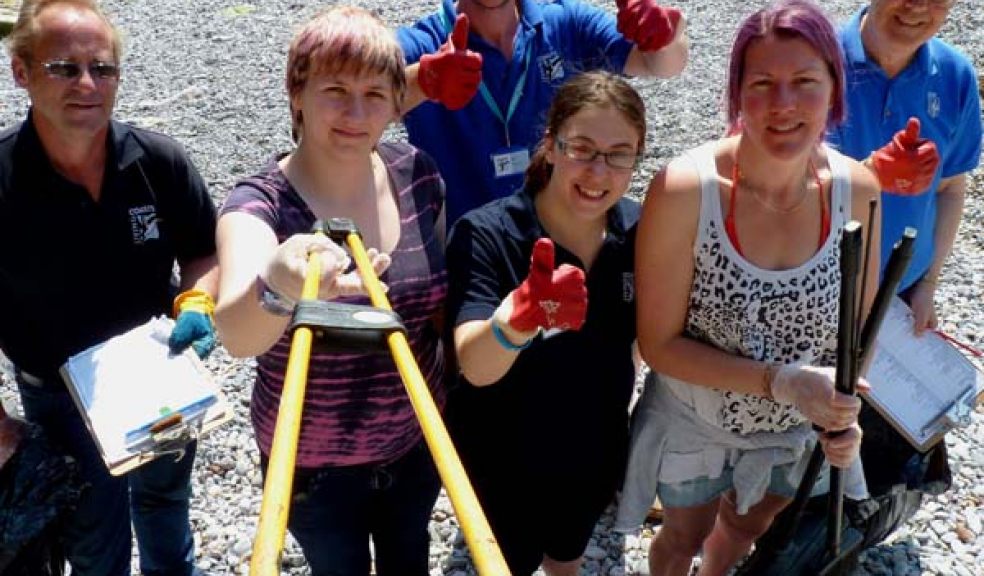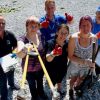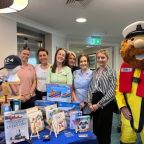
Litter threat to sea life
Staff at Torquay’s coastal zoo have spoken out about the amount of litter on the beaches and in the sea and highlighted the threat to marine life.
Clare Rugg, from Living Coasts, explained: “Beacon Cove is the beach on our doorstep. Some litter is brought in by the waves but much of it is left by beach users. The Council regularly cleans the beach – but it becomes littered again overnight! We think the problem is getting worse. Some people who volunteered at our recent big beach clean weekend were horrified by how much rubbish was picked up.
“Our beach litter problem is pretty appalling. We see so much unsightly litter – but what we can’t see is the amazing diversity of marine life just under the waves that this rubbish is threatening.”
Living Coasts staff and volunteers organize litter picks on Beacon Cove. A clean-up in September gathered 238 pieces of plastic, 211 metal items (including 77 bottle tops) and 545 bits of paper, as well as polystyrene, wood, rubber and over 500 pieces of glass. The haul weighed over 50 kilos. A previous clean picked up over 200 plastic items, including a bucket and a traffic cone, nearly 300 bits of paper, over 400 shards of glass and 170 pieces of metal, 90 of which were bottle caps. The total weight collected on that occasion was over 31 kilos.
The collection also yielded plastic balls, a watch, sunglasses and syringes. Clare: “When you pick up 77 bottle caps and 500 pieces of glass you start to see a pattern. It’s not the partying that’s the problem so much as the mess that’s left behind.”
During the same weekend divers and volunteers surveyed the waters off Beacon Cove and identified a wide range of marine species, including shanny, beadlet anemone, top shells, whelks, kelp, serrated wrack, periwinkle, shore crabs, velvet swimming crabs, and orange sea sponge.
“We have a wealth of species in the Bay – but all residents and visitors see is a dark tideline of filth.” Living Coasts is working with the Council, who clean the beach regularly, to find ways of tackling the problem. For more information go to www.livingcoasts.org.uk or ring 0844 474 3366.

















